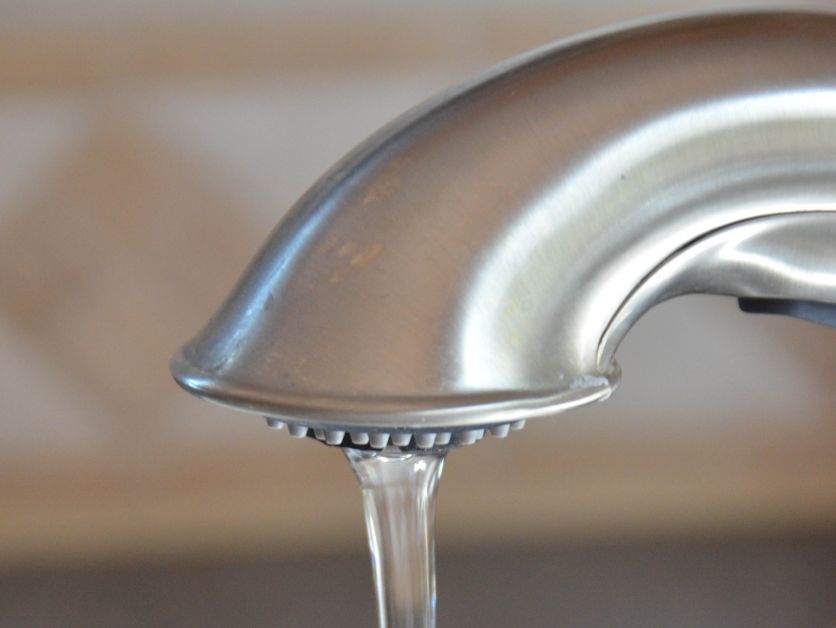WASHINGTON, March 18, 2017 – A federal judge has dismissed a lawsuit by the Des Moines Water Works (DMWW) against three drainage districts in Northwest Iowa, prompting a huge sigh of relief from many in the agriculture sector.
The claim, citing the federal Clean Water Act, was dismissed for lack of standing considering the drainage districts’ limited status under Iowa law. U.S. District Court Judge Leonard Strand for the Northern District of Iowa, held that the state legislature was the proper venue to address issue.
“Here, DMWW asserts that it has two property rights: (1) the right to obtain clean water from the Raccoon River, and (2) the right to use its treatment plant and facilities without impairment from pollutants discharged into the Raccoon River,” Strand said. “Even if these could be considered cognizable property rights under state law, DMWW holds those rights as a public entity, making them public property rights not protected by the Fifth Amendment’s Takings Clause. Moreover, based on the federal law authorities cited by the Iowa Supreme Court, a public entity such as DMWW cannot assert a Fifth Amendment takings claim against another political subdivision of the state. For these reasons, DMWW has no cognizable claim....”
Iowa Agriculture Secretary Bill Northey said the dismissal of this lawsuit is very welcoming news.
“It takes away an unnecessary distraction from the collaborative efforts underway to improve water quality in Iowa,” Northey said in a statement. “Iowa farmers, landowners, cities, businesses, homeowners and many other partners are taking on the challenge of improving water quality and we are seeing exciting results. There is still a lot of work to be done, but I truly believe that by working together, we can make big strides.”
For the past two years, there's been an ongoing battle between the DMWW and 13 drainage districts in Sac, Calhoun, and Buena Vista counties. The Water Works claimed that high levels of nitrates are polluting the Des Moines and Raccoon rivers at excessive rates and that farmers should ultimately pay damages.
Des Moines Water Works CEO Bill Stowe told KCCI News Friday evening he’s upset with the decision but congratulates agriculture groups who opposed the lawsuit.
“We are disappointed in the ruling and the court’s unwillingness to recognize the profound water quality impacts that pollution from drainage districts has on Iowa waterways,” he said. “Perhaps the state legislature should now spend its time addressing meaningful, long-term, sustainably-funded policy solutions to our serious water problems instead of meddling in affairs best left to local communities.”
Stowe added that the Water Works will consider options for continued water quality protection. Some accused Water Works of using possible damages it might have won from the lawsuit to pay for equipment that already needed updating. According to Stowe, it will cost “tens of millions of dollars” to update the filtration equipment needed at the facilities.
The utility provides water for 500,000 Iowans in the greater Des Moines metropolitan area.
Iowa farm organizations applauded the judge's decision.
Did you know Agri-Pulse subscribers get our Daily Harvest email and Daybreak audio Monday through Friday mornings, a 16-page newsletter on Wednesdays, and access to premium content on our ag and rural policy website? Sign up for your four-week free trial Agri-Pulse subscription.
“The litigious scheme pursued by the Des Moines Water Works was expensive and divisive. We encourage the utility to re-engage in a cooperative approach with rural Iowa to make real and long-lasting improvements in water quality,” noted Iowa Soybean Association President Rolland Schnell.
“Iowa soybean farmers remain steadfastly focused on advancing real solutions to better water. Watershed planning, an approach Iowa Soybean Association is heavily invested in, is the catalyst for long-term improvement in water and nutrient management.”
Iowa Corn Growers Association President Kurt Hora also applauded the court’s decision.
“As farmers, we want the safest, best quality water for Iowa. We believe a positive, collaborative approach is key to improving our state’s water quality,” Hora said. “The Iowa Corn Growers Association and our farmer-members will continue to use cooperation and collaboration in proactively improving our water quality. Through our work with the Iowa Agriculture Water Alliance, the Soil Health Partnership and our many other partnerships, activities, and programs, we are helping accelerate the adoption of practices outlined in the Nutrient Reduction Strategy.”
In January, the Iowa Supreme Court ruled Water Works could not win damages in the case against the drainage districts due to a 100-year-old Iowa law.
“I’m pleased to see an end to this costly litigation brought about by the Des Moines Water Works,” Gov. Terry Brantad said. “From the very beginning, we’ve attempted to work in a collaborative way with our partners in the field and our communities to improve water quality in Iowa. That’s the Iowa way. Now, we can finally put this distraction behind us and focus on the full implementation of the nutrient reduction strategy.”
#30


